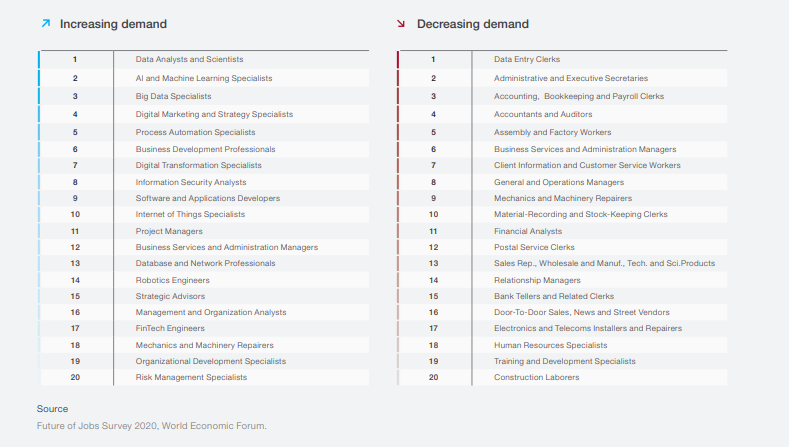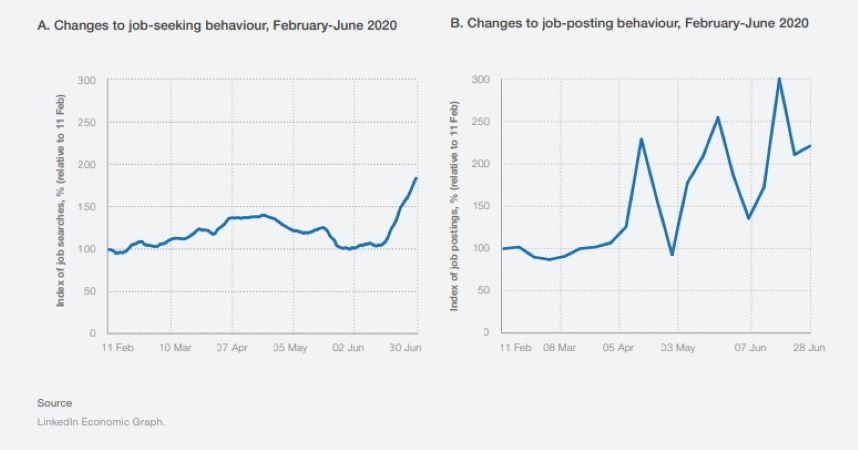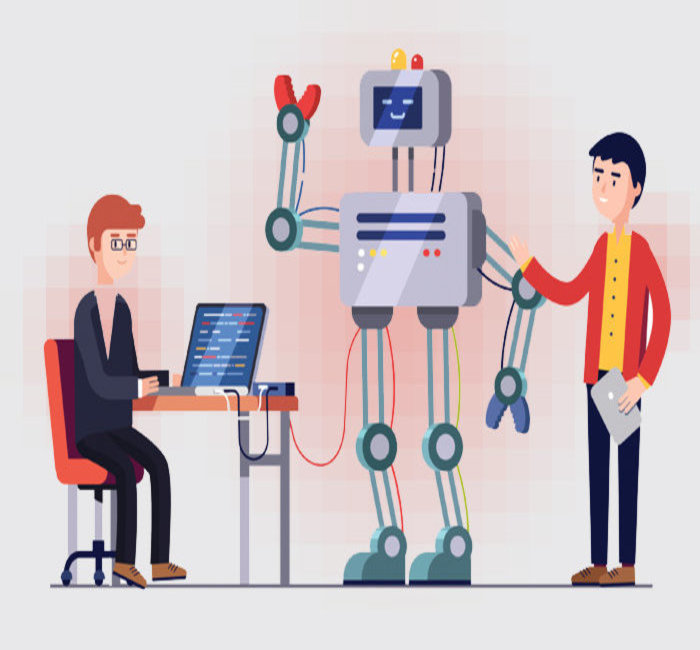
FUTURE OF JOBS
“COVID-19 has accelerated the arrival of the future of work,” said Saadia Zahidi, Managing Director, World Economic Forum. The research released recently by the World Economic Forum indicates that what used to be considered the “future of work” has already arrived.

The data shows that by 2025, automation and new division of labour between humans and machines will disrupt 85 million jobs globally in medium and large businesses across 15 industries and 26 economies. More than 80% of business executives are accelerating plans to digitize and deploy new technologies;
50% of employers are expecting to accelerate the automation of some roles in their companies. In contrast to previous years, job creation is now slowing while job destruction is accelerating.

After years of growing income inequality, concerns about technology-driven displacement of jobs, and rising societal discord globally, the combined health and economic shocks of 2020 have put economies into freefall, disrupted labour markets and fully revealed the inadequacies of the markets. Millions of individuals globally have lost their livelihoods and millions more are at risk from the global recession, structural change to the economy and further automation. Some 43% of businesses surveyed indicate that they are set to reduce their workforce due to technology integration, 41% plan to expand their use of contractors for task-specialized work, and 34% plan to expand their workforce due to technology integration.

By 2025, employers will divide work between human and machines equally. Roles that leverage human skills will rise in demand. Machines will be primarily focused on information and data processing, administrative tasks and routine manual jobs for white- and blue-collar positions.

The research also indicated that a growing number of people are making career changes to entirely new occupations. According to LinkedIn data gathered over the past five years, some 50% of career shifts into data and artificial intelligence are from different fields. That figure is much higher for sales roles (75%), content creation and production positions, such as social media managers and content writers (72%), and engineering roles (67%).
According to The Future of Jobs Survey, core skills such as critical thinking, analysis, and problem-solving are consistently top of the reskilling and upskilling priorities for educators and businesses. Newly emerging are skills in self-management such as resilience, stress tolerance, and flexibility.

Data from Coursera suggests that individuals could start gaining the top 10 skills for each emerging profession in people and culture, content writing, sales, and marketing in one to two months. Those wishing to expand their skills in product development and data and artificial intelligence could do so in two to three months, and those switching into cloud computing and engineering could make headway in the new skillset through a four to five-month learning program.
There has been a fourfold increase in the number of people seeking opportunities for online learning under their own initiative, a fivefold increase in employers offering their workers online learning opportunities, and a nine-fold enrolment increase in people accessing online learning through government programs.









